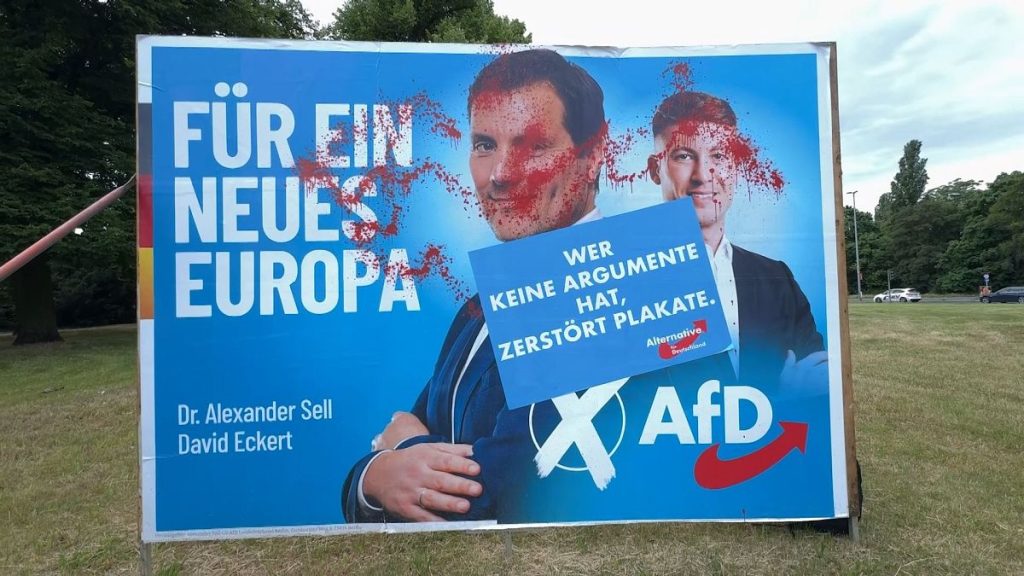Violence against politicians has been a prevalent issue in Germany, but victim advice centres are also raising concerns about everyday racism and anti-Semitic attacks. Euronews visited Thuringia, known as a right-wing hotspot, to interview a victim of neo-Nazi violence. Mayar, a Syrian refugee who has lived in Germany for nearly nine years, recalls being attacked by a known neo-Nazi who physically assaulted him. Despite the perpetrator’s history of violence, he received a suspended sentence, leaving Mayar feeling unsafe and reluctant to go out at night in his area, known for its right-wing extremist presence.
Mayar reflects on the increase in racism that he has witnessed firsthand, occurring on the streets and online. He attributes this rise in racist incidents to the growing support for the far-right Alternative for Germany (AfD) party, which has been labeled as extremist by a German court. Mayar expresses his fear of potential deportation, despite growing up in Germany, and struggles with a sense of belonging, questioning whether he is too German for Arabs or too Arab for Germans. The AfD’s involvement in discussions about deporting naturalized German citizens back to their countries of origin has sparked mass protests and further heightened tensions in the country.
The Association of Counselling Centres for Victims of Right-Wing, Racist, and Anti-Semitic Violence reports a record number of attacks in Germany, with figures only representing a portion of the actual incidents. Franz Zobel, a spokesperson for victim support group Ezra, highlights the connection between the rise in violence and support for the AfD, particularly in areas where the party has gained political influence. Zobel refers to a study indicating that a significant percentage of hate crime supporters would vote for the AfD. He also notes that the rise in violent acts is not limited to Germany but is part of a broader trend across Europe.
Investigative reports reveal a concerning trend of violence involving AfD representatives, with a significant number of them being convicted of violent acts or currently under investigation. Zobel emphasizes that many perpetrators feel emboldened to commit violence due to the lack of consequences they face, with lenient sentences and delayed convictions being common. The slow judicial process in Thuringia, along with alleged ties between judges and AfD politicians, raises questions about the impartiality of the legal system and the handling of cases involving racist motives. The lack of recognition of racist offenses in court judgments further contributes to the cycle of impunity for perpetrators of right-wing violence.
The challenges faced by victims of right-wing violence, such as Mayar, highlight the urgent need for stronger measures to combat racism and xenophobia in Germany. The prevalence of everyday racism, the rise of right-wing extremism, and the political connections to violent acts underscore the complexities of addressing these issues at a societal level. The role of the AfD in perpetuating discriminatory attitudes and the lack of accountability for its members accused of violence present significant obstacles in the fight against hate crimes. Efforts to improve legal processes, increase awareness, and promote tolerance are essential in creating a safer environment for individuals targeted by discrimination and violence. The ongoing struggle to address these issues reflects broader challenges in confronting xenophobia and extremism across Europe.


